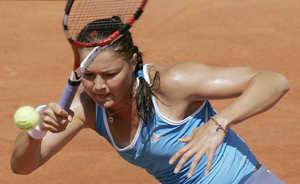In yesterday’s blog I began to share some facts that challenge the way we think about talent development. I think you’ll find over the next few weeks, the material I share with you on this topic will change the way you train, recruit and coach.
In my intro, I included questions similar to the following:
-
Why has one tennis camp in Russia developed more top ten athletes than any other?

-
Why has one music school in New York turned out the likes of Itzhak Perlman and Yo Yo Mah?
or, as metioned previously…
- Why have 12 different boys from the extremely small country of Curacao, made it to the semifinals of the Little League World series, six times over the past eight years, even taking the title once?
In his book The Talent Code, Daniel Coyle uncovers certain consistent patterns that exist in every “talent hot bed” in the world. Specifically, these patterns include similar methods of practice, motivation, and coaching.
So, let’s examine these three components further: Practice, Motivation (he calls it Ignition) and Coaching (he calls it Master Coaching):
It turns out that Practice, in each of the talent hot beds, is achieved in a very similar way. It is performed so that mistakes can be tracked and modified, without missing the opportunity for correction. For example, in one of the top music schools, students are asked to play so slowly that nobody can possibly recognize the song being played – The student is then able to notice imperfections and train the brain to grow in this area.
Similarly, tennis players are trained to work through routine movements slowly, without a ball, to train the brain to grasp the fundamentals before actually hitting a ball. They do this throughout many years of training.
What is happening in the brain while one trains like this? (from a recent blog that also references The Talent Code, but worth including again)
Your brain is made up of millions of neurons and synapses, all with the ability to build super highways of super speed. All that is needed to build these connections is a substance called Myelin. Myelin, it’s recently been found, has the ability to grease the skids between neurons so that large pathways are formed to create mega bandwidth learning and growth, if given the opportunity. And guess what gives your brain the greatest opportunity for Myelin production?… Failure! Not just failure, but lots of failure…the more the better! And not just large doses of failure, but failure and correction, failure and correction, failure and correction…
Here’s an example:
In 1997, Soccer Coach, Simon Clifford, was so curious about what caused Brazilian Soccer to be so successful, that he temporarily moved to Brazil and lived in a dimly lit dorm-like setting to find out first-hand. What he found has changed the way many elite youth soccer teams practice, and has made Simon Clifford a very wealthy man, given that he has founded worldwide “Brazilian Soccer Schools” all over the globe.
What he found was that everyone, except the professionals, were playing a much smaller game of soccer on a small, hard court, with a heavier ball. Given the small space, the game moved quickly and frantically, with split-seconds to decide where to pass, to whom, and how. In other words, unlike American Soccer, Brazilian Soccer offers many more chances to fail and succeed in each minute of play, for each player – Every player touches the ball six times more per minute, to be exact.
When the brain experiences this incredible frequency of failure and correction, it grows Myelin like mad! Super highways are formed that can ultimately lead to amazing talent.
So what does this teach us?
When we are training, it’s not the “talented” people we should focus on, it’s the people who share the capacities of the top performers, and are willing to practice until they reach mastery of a given skill. People who are willing to practice scripts, over and over and over… Sales people who are willing to make multiple calls, fail/correct, then fail/correct, again and again…These will be the folks who develop talent!
I don’t know each of your businesses well enough to definitively be able to articulate what should/shouldn’t be part of your training regimen, but I do think that if you can mirror the practices of these talent hot beds, tailored to your industry of course, you have a much better chance of turning out some true talent.
I would love to hear your ideas regarding how your company’s training might be able to resemble these talent hot beds…
Next: Ignition (Motivation)

